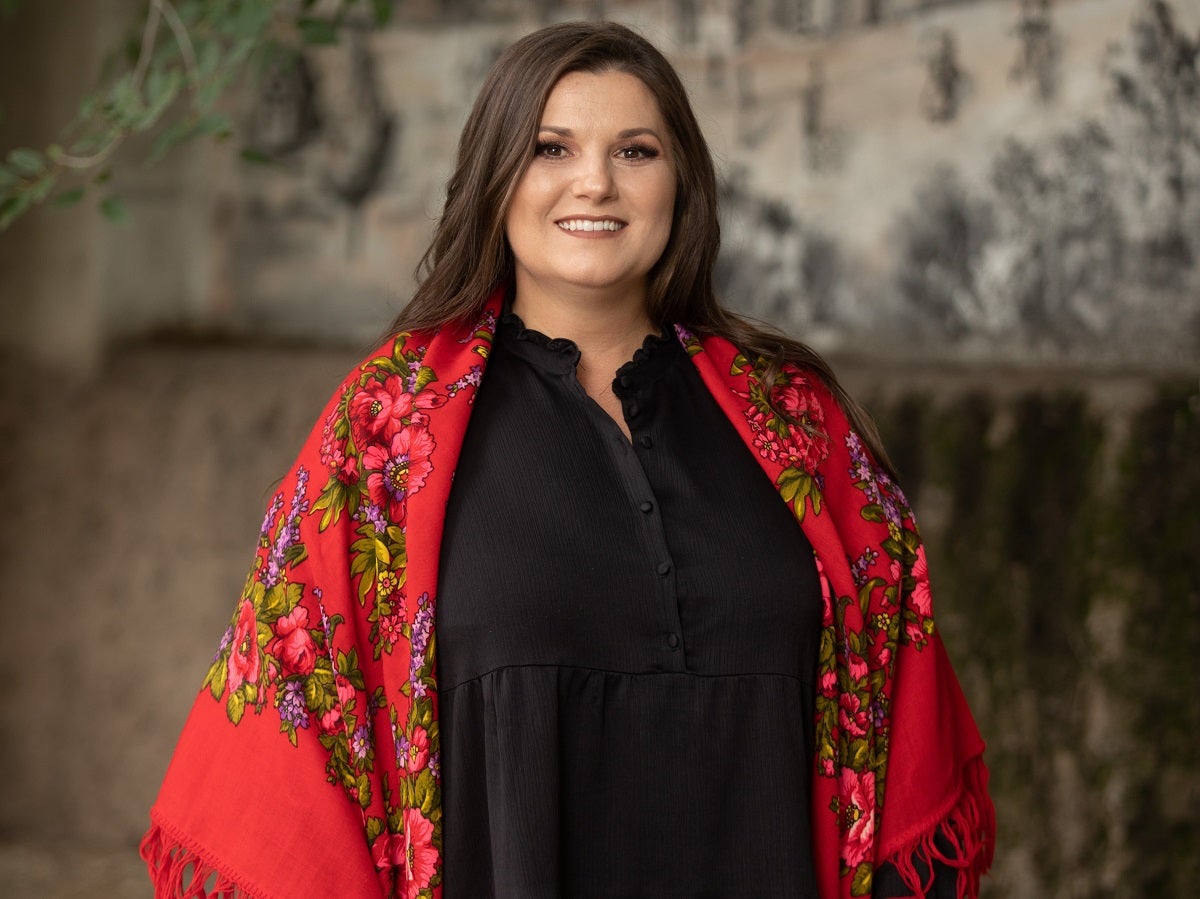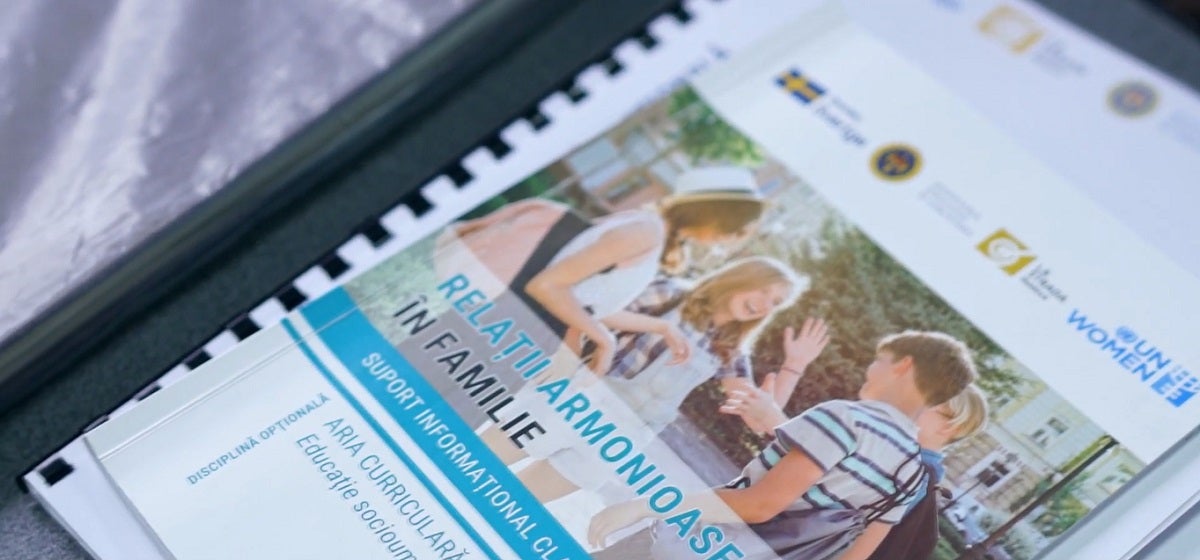Promoting healthy family dynamics in Moldova through education
Date:
Access to education is not only a fundamental right of all people but also a public responsibility. To celebrate the role of education in achieving peace and sustainable development, the United Nations General Assembly celebrates International Education Day on 24 January every year. Without equitable and inclusive education and opportunities for all, countries will fail to achieve gender equality and break the cycle of poverty that leaves millions of children, young people and adults behind.
To commemorate International Education Day, UN Women Moldova is sharing interviews about an innovative class in schools called "Harmonious Relationships in the Family”. Developed by LA STRADA Moldova to respond to the need for more educational programmes targeting youth, the class seeks to build healthier family dynamics that are rooted in gender equality, mutual respect and direct communication in order to prevent and reduce violence.

Nicoleta Fiodorov-Ganea, a teacher at the Vasile Alecsandri Theoretical High School in Chișinău, has been teaching this optional class to her students. Below, she discusses how beneficial this discipline has been for today's generation.
"The class ‘Harmonious Relationships in the Family’ is an effective one, a discipline that should be included on the list of core school subjects. The purpose of this discipline is to teach students to renounce abuse, criticism, bullying, and to convince them to solve problems through communication. The role of schools in cultivating non-violence is to explain to students that healthy relationships are not abusive and that family members must respect each other.
This class is also special because the curriculum covers various topics that are relevant for today's generation. These topics are structured in such a way that every student who participates in the course knows that communication is the basis for solving any problem. By informing children that, in a family with harmonious relationships, children are perceived as a value in themselves, we increase their interest in studying, encouraging them to make changes for the better in their families and aim for more goals for the future.
When we talk about gender equality, we are not only talking about equal rights between women and men; we also emphasise gender identity, ethnicity, religion and sexual orientation. It is important for every student to understand that all people are born with equal rights and that each of us must take tolerance into account.
During classes, we remind students that the gender someone is born with should not influence their quality of life in society and that discrimination, violence against women and girls and their underrepresentation in leadership positions is inadmissible. During our classes, we also address the subject of gender stereotypes and, in particular, how we combat prejudices in our community.
Another subject of great importance – which I teach to girl students – concerns the initiation stage of romantic relationships and how to detect the early signs of a potentially abusive partner".

Andreea Mocanu, an 11th grade student who took the class "Harmonious Relationships in the Family," discusses her experience below.
"Studying this discipline really helps me maintain close and healthy relationships with my family, and it helped me learn how to act during some difficult situations in my life. The information presented is extremely useful for us students, given that many of my classmates don’t have parents at home with whom they can talk freely. I’m sorry that my parents didn’t have this subject as a class at school when they were growing up.
When it comes to subjects like domestic violence, stereotypes and gender equality, I had a lot of gaps in my knowledge, given the fact that I live in an extended family where, on a daily basis, my grandmother instils in me the idea that women must submit to men and that men are the heads of the family. With great difficulty, I managed to convince my family that domestic violence is a violation and that any conflict must be solved through communication.
Thanks to this class, I have learned to accept the people around me as they are, without discriminating or judging them, and conflicts have become matters of discussion rather than quarrels. This discipline helps me visualise what a good partner and a healthy romantic relationship should be like".
Doina Cazacu, director of the Women Programme at LA STRADA Moldova, says that gender equality is a topic on the agenda of international organisations and state governments and that it remains a subject of research and intervention for the associative sector as well. “We consider it extremely important that investments in education contain not only well-known and applied subjects throughout the years, but, with the development of society, the shaping of new areas of interest,” she says. “As young people face new challenges, they can learn behavioural and relationship skills in a non-violent, non-discriminatory manner based on the principles of mutual respect and equality".
Dominika Stojanoska, UN Women Moldova Country Representative, says that this optional class for youth is an important part of joint efforts to promote positive social norms that prevent violence against women and domestic violence, which are regrettably still persistent in the region and around the world. “We are glad that youth in Moldova have opportunities in schools today to discuss issues related to healthy relationships, consent, flirting versus sexual harassment and other related topics that will support them in becoming emotionally mature adults,” she says.
The class “Harmonious Relationships in the Family” was developed through the project "Developing, piloting and integrating early prevention of gender-based violence and violence against women in the school curriculum", implemented by LA STRADA Moldova in partnership with UN Women Moldova and the Ministry of Education and Research of the Republic of Moldova, with the financial support of Sweden.